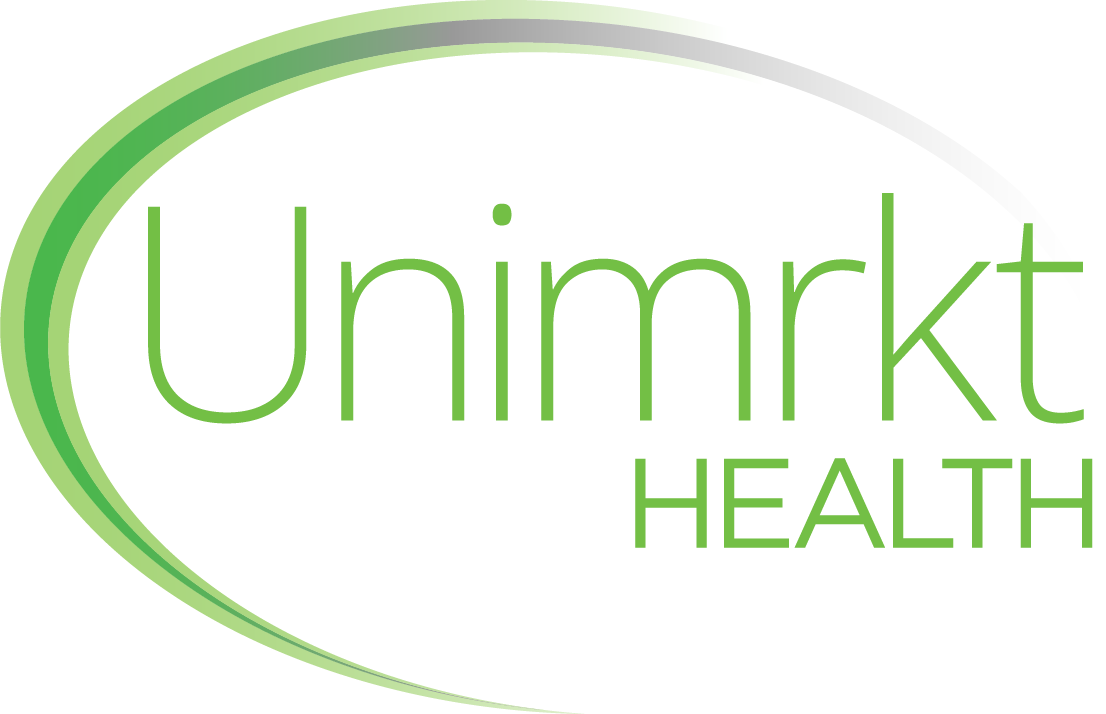How Healthcare Industry Leaders Are Leveraging Generative AI
- Unimrkt Healthcare » Blog » How Healthcare Industry Leaders Are Leveraging Generative AI
Generative AI (Gen-AI) is rapidly transforming the healthcare industry, simplifying complex tasks and creating opportunities for increased efficiency and accuracy across operations. From clinician documentation to operating room scheduling, Gen-AI is helping healthcare providers and payers address one of the sector’s biggest challenges: managing and processing large data and paperwork. By rapidly extracting, organising, and interpreting complex clinical information for faster, more informed decision-making, Gen-AI tools can be incredible for streamlining healthcare data processing. However, while the adoption of AI tools is crucial to staying competitive in the evolving healthcare landscape, it’s important to remember that these tools require human oversight to ensure ethical and accurate handling of sensitive patient data. With that said, let’s explore the revolutionary ways healthcare leaders are using Gen-AI in their data processing and the potential for future advancements.
Applications of Gen-AI in the Healthcare Industry
1. Automating Manual Note-Taking
In the fast-paced healthcare environment, clinicians are often burdened with extensive documentation tasks. Electronic Health Record (EHR) platforms, essential for capturing comprehensive patient journey information, have become the backbone of healthcare data systems. However, these platforms need data to be inputted manually, a task that can be both time-consuming and prone to error.
Generative AI tools can help automate manual note-taking, saving clinicians significant time. These tools are designed to identify gaps in documentation, such as missing patient history or incomplete diagnosis records, and can even record patient information with higher accuracy. By integrating AI into this workflow, healthcare providers can reduce administrative burden and improve the overall quality of patient data.
2. Unearthing Meaning from Unstructured Data
The healthcare sector deals with vast amounts of unstructured data that are not easily analyzed, such as clinical notes, diagnostic images, medical charts, and recorded voice notes. This data often contains valuable insights that can lead to better strategies to improve patient outcomes and healthcare delivery.
Generative AI can play a pivotal role in extracting meaning from these unstructured data sources. By employing advanced algorithms, AI tools can identify patterns and trends in the data that would otherwise go unnoticed. These insights can then be used to improve clinical decision-making, personalize patient care, and streamline operations across the healthcare system.
3. Simplifying Collation with Larger Structured Datasets for Better Analysis
Healthcare data is often siloed, with different systems storing various types of information. For example, doctor’s notes might be stored in one system, while insurance claims, prescription data, and lab results are kept in others. This fragmentation can create inefficiencies and make it difficult to get a complete picture of a patient’s health or financial status.
Gen-AI tools can help bridge this gap by seamlessly collating data from disparate sources and creating a unified, structured dataset. Integrating unstructured clinical data with structured datasets such as insurance claims, medical records, and prescription histories allows healthcare providers to gain deeper insights into patient care and treatment plans. This enhances the quality of care and ensures that healthcare systems operate more efficiently.
4. Improving Customer Relations and Claims Settlement
Managing patient inquiries and claims settlement can be a complex and slow process for healthcare providers. With many different factors involved, from plan benefits and discounts to claims status and prior authorizations, it can take significant time for staff to respond to patient queries.
Generative AI tools can streamline this process by quickly pulling up relevant information related to a patient’s plan benefits, discounts, and claims settlement issues. By using AI to automate these functions, healthcare providers can resolve customer queries and claims more efficiently, ultimately improving patient satisfaction. Additionally, AI-driven tools can help with prior authorizations by clearly outlining out-of-pocket costs, benefits, and plan details, allowing patients to have a clearer understanding of their healthcare finances.
5. Automating Administrative and Corporate Work in Hospitals
Hospitals are large organizations with many moving parts. Finance, IT, and administrative teams are often buried in paperwork and routine tasks that can be time-consuming and inefficient. The integration of Gen-AI tools into hospital administration can streamline many of these processes.
From financial forecasting and resource allocation to HR management and IT support, AI can automate repetitive administrative functions and provide accurate, data-driven insights. This allows administrative and corporate teams to focus on high-level tasks and decision-making, increasing operational efficiency and reducing administrative costs.
6. Simplifying Lab and Discharge Summaries
In the healthcare setting, lab results and discharge summaries are crucial documents that help track patient progress and ensure continuity of care. However, generating these summaries manually can be a time-consuming process, especially in busy hospitals.
Generative AI can significantly improve the efficiency of creating lab and discharge summaries. By automating the generation of care instructions, checklists, and summary reports, AI tools can ensure that these documents are created more quickly and accurately. This improves both the efficiency of the medical staff and the patient experience, reducing delays and enhancing the quality of care.
7. Extracting Meaningful Insights From Customer Feedback
The feedback patients provide is invaluable for healthcare organizations looking to improve their services and patient satisfaction. However, manually analyzing large volumes of feedback can be overwhelming. This is where AI comes in.
Generative AI tools can help process large sets of customer feedback, from surveys to online reviews. By analyzing sentiments, identifying recurring issues, and extracting key insights, healthcare organizations can make data-driven improvements to their products and services. These insights can also inform decisions about new healthcare offerings and initiatives.
8. Speeding up Drug Discovery
The process of drug discovery can be lengthy and costly, often taking years to bring a new drug to market. Generative AI is increasingly being used in the pharmaceutical sector to accelerate the discovery of new drugs and treatments.
By analyzing large datasets of molecular information, AI tools can identify promising drug candidates more quickly than traditional methods. Additionally, AI can predict how different compounds might interact with the body, reducing the number of trial-and-error experiments needed. This leads to faster, more cost-effective drug development processes.
Why Healthcare Market Research Is Critical for Gen-AI Adoption
While Gen-AI holds great promise, its successful implementation in the healthcare sector requires thorough research and understanding of its feasibility. This is where primary research in healthcare plays a vital role. By partnering with healthcare primary market research firms, businesses can gain a deeper understanding of how Gen-AI tools can be integrated into their operations, and whether they align with industry needs.
Primary research methodologies like Surveys, Interviews, and Focus Groups can provide valuable data to back the healthcare industry’s readiness to adopt Gen-AI. This data can help businesses understand potential roadblocks, patient concerns, and regulatory considerations. This data is critical for developing a clear Gen-AI adoption roadmap that ensures smooth integration and long-term success.
Create a Gen-AI Adoption Roadmap with Rich Market Data
Developing a successful Gen-AI adoption roadmap goes beyond theoretical knowledge; it requires a solid foundation of market data. By partnering with a trusted firm like Unimrkt, healthcare organizations can access comprehensive, real-world data that addresses the complexities of integrating Gen-AI technologies. Armed with accurate market data, businesses can avoid common pitfalls, refine their strategies, and confidently move forward with their technology investments. With years of expertise in healthcare market research, we provide a range of primary research methodologies, including Online Surveys, Post Surveys, Face-To-Face Surveys, and Telephone Interviews to find all kinds of research needs. To learn more about how we can support your healthcare Gen-AI initiatives with reliable and accurate market data, reach out to Unimrkt Healthcare today. Call +91-124-424-5210, +91-9870-377-557, or email sales@unimrkthealth.com. You can also fill out our contact form, and our team of experts will connect with you promptly.
Recent Posts
- 10 Medical Online Survey Mistakes You Must Leave Behind in 2025
- How Qualitative Healthcare Research Can Accelerate Ethical AI Adoption
- Trust as a Growth Strategy: What Healthcare Leaders Can Learn From Business Market Analysis
- Mapping the Healthcare Value Chain: A Market Research Perspective
- Decoding Emotional Triggers in Treatment Choices: A Qualitative Approach
Archives
Quick Enquiry
Customer Service, We Make it Better
Related Posts:
Let's Connect
Please, fill in the form to get in touch!



